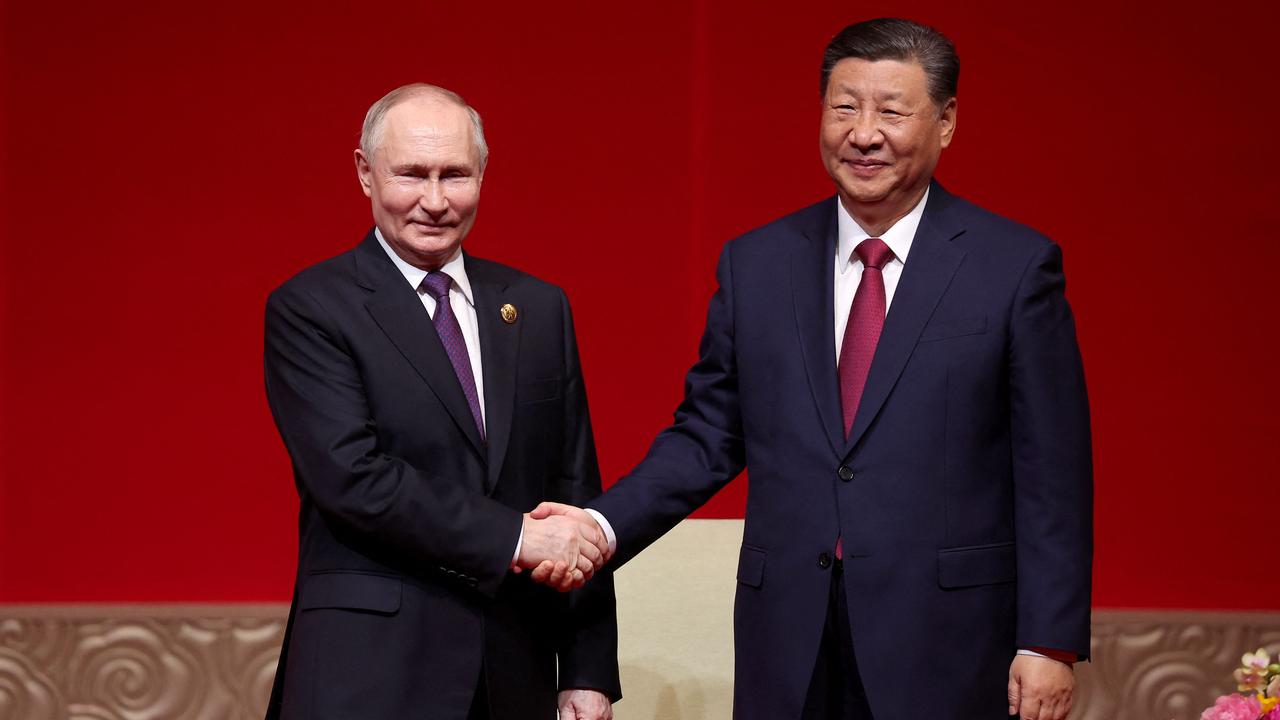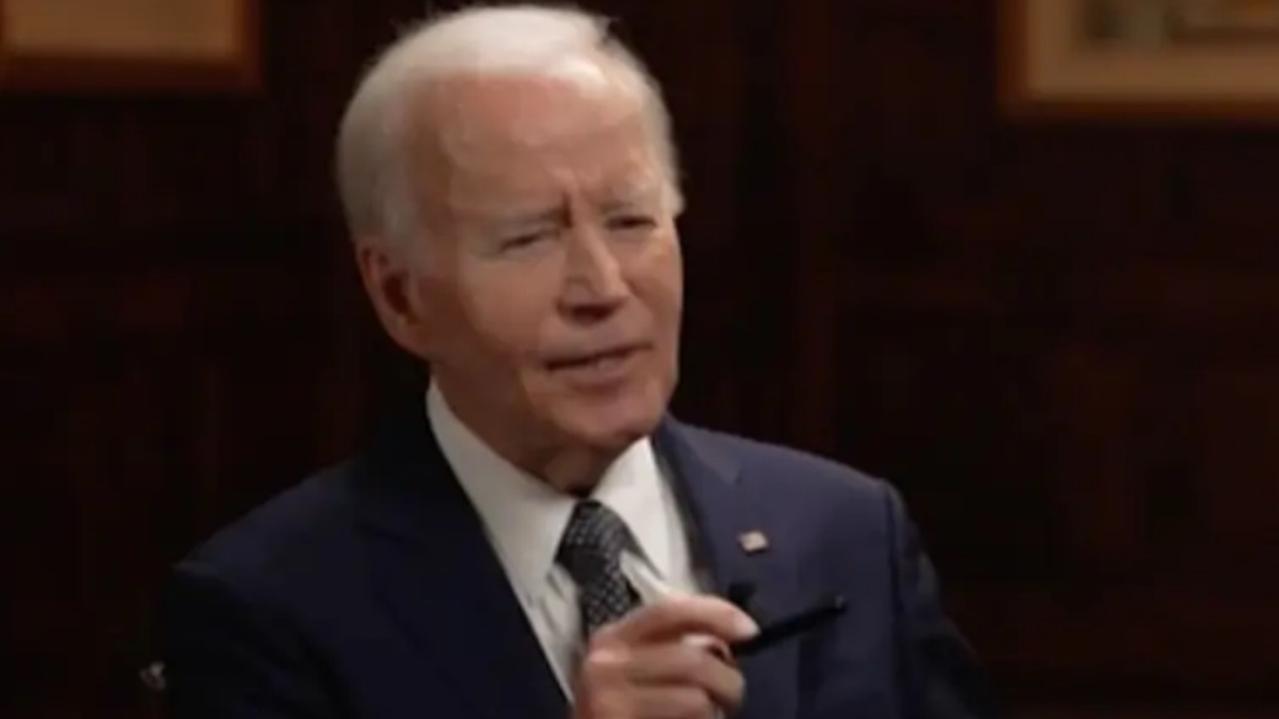Coronavirus world: Singapore lifts Covid curbs as WHO recommends ‘Pfizer pill’ for unvaccinated
Singapore lifts the last of its strict Covid restrictions, while the World Health Organisation has ‘strongly recommended’ Pfizer’s antiviral pill for unvaccinated.
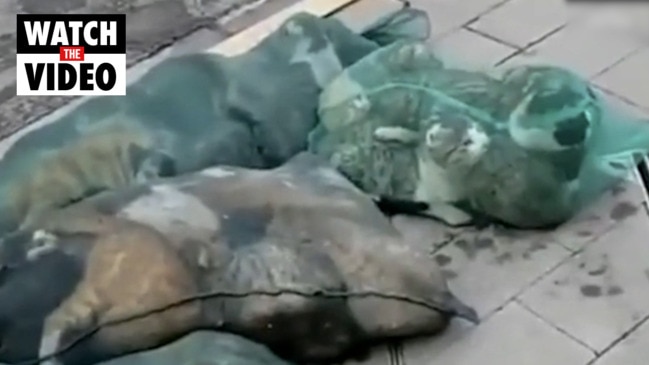
World
Don't miss out on the headlines from World. Followed categories will be added to My News.
Singapore will lift most of its strict virus curbs next week in what officials said was a “significant step” towards returning to pre-pandemic normalcy.
The city-state reopened its borders to all vaccinated visitors earlier in April, joining other countries in the region that have recently dropped travel curbs as they shift to living with Covid-19.
Authorities announced plans Friday to lift more measures, including scrapping all testing requirements for vaccinated travellers beginning Tuesday, April 26.
Group size limits and safe distancing requirements will be lifted, and all workers will be allowed to return to the office.
People will no longer be required to check in with contact-tracing tokens or apps when entering most venues, but masks will still be required for indoor settings and on public transportation.
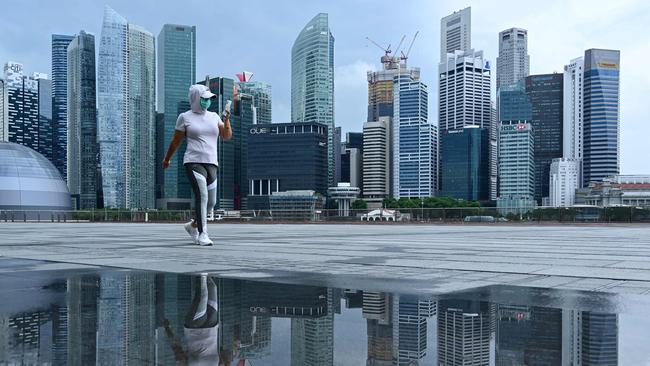
It comes as daily infections and hospitalisations steadily declined in the past week, with under 3,100 local cases a day on average.
“With all these changes, we can now have a well-deserved breather after two very difficult years of fighting the virus,” said Lawrence Wong, co-chair of a government task force fighting Covid-19.
“But let’s always remember we are getting closer to the finish line but the race is not over. And the pandemic is certainly not over,” he added, warning that curbs could be reintroduced if a new variant poses a threat.
At the start of the pandemic, the country of 5.5 million kept Covid-19 cases low through border closures and a tough lockdown.
It has faced sizeable outbreaks since last year and, with some of the world’s highest vaccination rates, authorities shifted to a policy of living with the virus.
WHO ‘STRONGLY RECOMMENDS’ COVID PILL
The World Health Organisation “strongly recommended” Pfizer’s Covid-19 antiviral pill, Paxlovid, for patients with milder forms of the disease who were still at a high risk of hospitalisation.
US pharma giant Pfizer’s combination of nirmatrelvir and ritonavir was the “superior choice” of treatment for unvaccinated, elderly or immunocompromised people with Covid, the WHO’s experts said in the BMJ medical journal.
For the same patients, the WHO also made a “conditional (weak) recommendation” of the antiviral drug remdesivir made by US biotech firm Gilead — which it had previously recommended against.
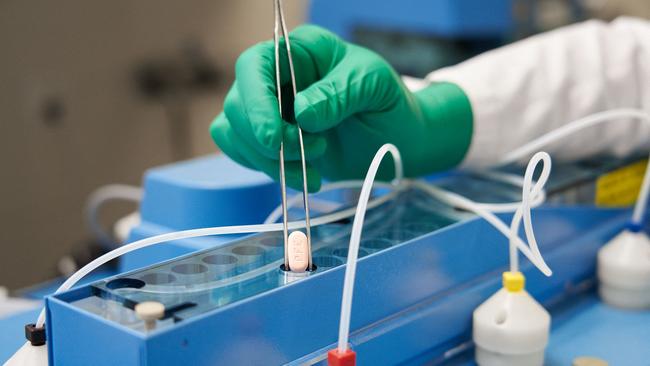
The WHO recommended Paxlovid over remdesivir, as well as over Merck’s molnupiravir pill and monoclonal antibodies.
Pfizer’s oral treatment prevents hospitalisation more than the “available alternatives, has fewer concerns with respects to harms than molnupiravir, and is easier to administer than intravenous remdesivir and antibodies,” the WHO’s experts said.
The new recommendation was based on the findings of two trials involving almost 3,100 patients which showed that Paxlovid reduced the risk of hospital admission by 85 per cent.
The trials also “suggested no important difference in mortality” and “little or no risk of adverse effects leading to drug discontinuation”.
The recommendation applies to people over the age of 18, but not to pregnant or breastfeeding women.

It also does not apply to patients with a low risk of complications from the disease, because the benefit would be minimal.
The WHO’s experts also declined to give an opinion for patients with severe forms of the disease, due to a lack of data.
The WHO stressed the limitations of such antiviral treatments. “The medicine can only be administered while the disease is at its early stages,” they said.
This means the patients must quickly test positive and be prescribed the pill by a doctor — all of which can pose obstacles for low- and middle-income countries, the WHO said.
Patients must start taking their Paxlovid pills within five days of the onset of symptoms — the course then lasts five days.
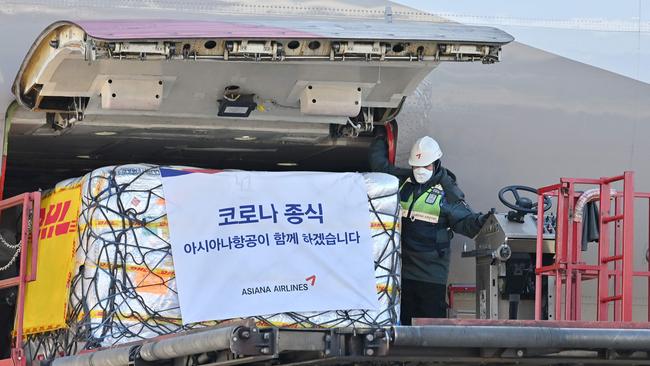
US APPEALS MASK MANDATE
The United States government is appealing a court ruling that lifted a federal mask mandate on public transport, setting up a protracted court battle to decide the country’s legal authority to force public compliance.
The US’s Justice Department announced the appeal after the Centers for Disease Control and Prevention claimed the masks remain “necessary to protect the public health”.
A US federal judge struck down the Covid-19 mask mandate for exceeding the CDC’s statutory authority.
The mandate had been extended to May 3 prior to the decision, and White House press secretary Jen Psaki said the appeal was being launched to “preserve” the CDC’s authority to impose mandates for future use.

US District Judge Kathryn Kimball Mizelle of the Middle District of Florida said in her decision that mandate “exceeded the CDC’s statutory authority,” and it “failed to adequately explain its decisions.”
Multiple major airlines subsequently dropped mask requirements on domestic flights and some international flights, while ride-hailing services Uber and Lyft as well as passenger rail Amtrak additionally announced an end to mask mandates.
The mask policy across the country has caused widespread confusion, with local officials left to decide policy outside of the federal government’s mandate on planes, trains and buses.
The government’s appeal could create further headaches after the mandate was lifted, and possibly create tensions for travellers if it is reinstated.

The CDC said in a statement that it would continue to assess the situation but currently continues to recommend masks in all public transportation.
“As we have said before, wearing masks is most beneficial in crowded or poorly ventilated locations, such as the transportation corridor,” the statement said.
CHINA’S COVID DEATH TOLL RISES
China reported eight Covid-19 deaths in Shanghai on Thursday, local time, raising the toll in the city to 25 fatalities as authorities struggled to rein in infections despite a gruelling, weeks-long lockdown.
The fast-spreading Omicron coronavirus variant has driven a huge spike in cases in the metropolis of 25 million people, and the government has imposed tight movement restrictions and multiple rounds of mass testing to combat the outbreak.
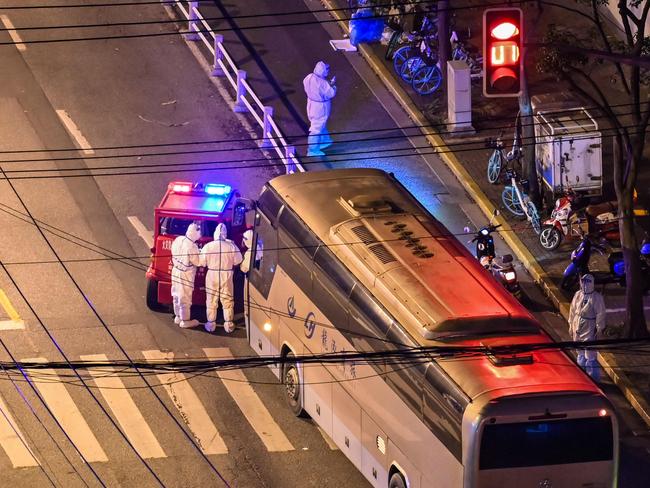
The lockdown has taken a heavy social and economic toll, with residents voicing their fury on social media over food shortages and lack of access to non-Covid medical care.
The seven newly reported deaths were cases with underlying conditions such as lung cancer and diabetes, city authorities said. Five of the patients were people over the age of 70.
The patients “became severely ill after admission to hospital, and died after ineffective rescue efforts, with the direct cause of death being underlying disease,” the Shanghai government said in a statement.
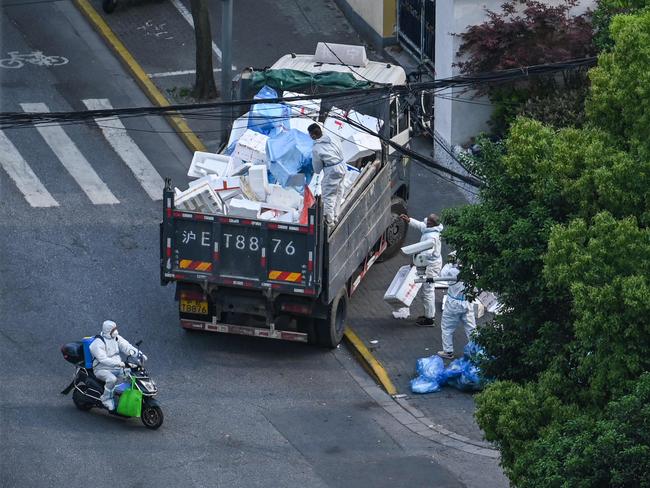
The city reported more than 18,000 new and mostly asymptomatic coronavirus cases on Wednesday.
More than 400,000 infections have been reported in Shanghai since March, and the city reported its first Covid deaths on Monday.
The official death toll remains low compared with the reported cases, but some have cast doubt on these figures, pointing to the low vaccination rate in China’s vast elderly population.
By comparison, Hong Kong – which also has a high number of unvaccinated elderly – has recorded nearly 9,000 deaths out of 1.18 million known cases since Omicron surged there in January.
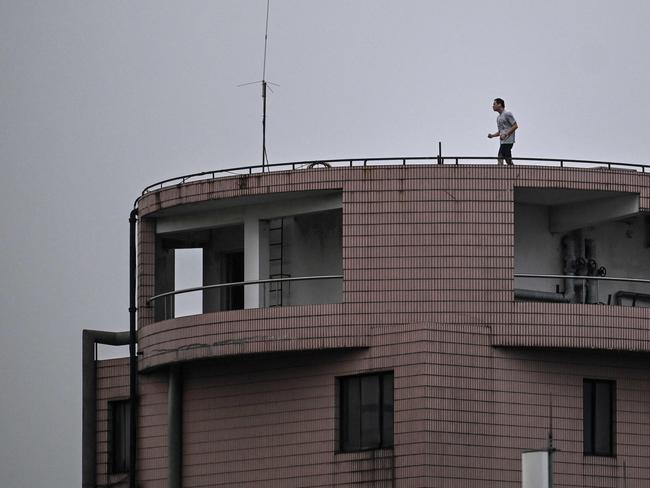
Beijing insists its zero-Covid policy of hard lockdowns, mass testing and lengthy quarantines has averted fatalities and the public health crises seen in many other parts of the world.
But the latest lockdowns have clogged supply chains, forcing businesses to halt production.
Authorities have called for a “white list” of key industries and companies to be drawn up so production can continue, with more than 600 firms identified for early work resumption in Shanghai.
US electric car giant Tesla “officially resumed production” on Tuesday, state media reported, after suspending work at its “gigafactory” in the city for more than 20 days.
The resumption will happen in a “closed-loop system”, however, with staff sleeping on site and being tested for Covid, Bloomberg News reported.
CHINA VIDEO FOOTAGE SHOWS CATS BOUND FOR SLAUGHTER
Horrific footage from Shanghai reportedly shows bags of cats left on the streets amid claims the defenceless animals are set to be slaughtered after their owners tested positive for Covid-19.
The disturbing video shows the animals writhing inside transparent sacks left on a footpath.
It is believed that the cats have been taken from their owners as China continues to pursue its strict “zero-Covid” approach to the pandemic.
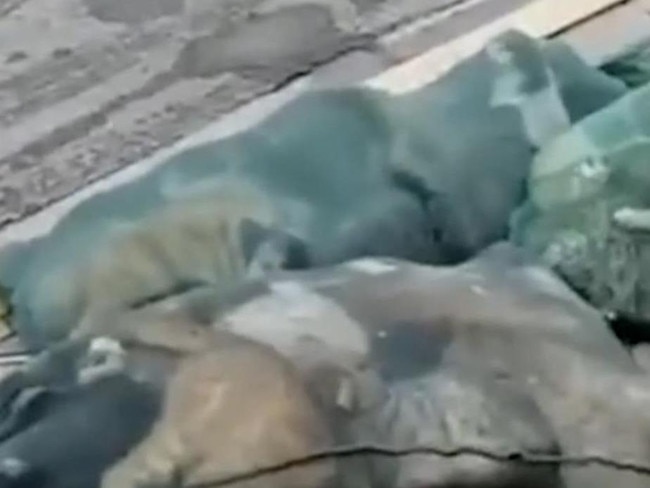
It comes after Hong Kong officials ordered the killing of thousands of hamsters last January after traces of the virus were detected at a pet shop.
Hong Kong and mainland China are continuing their bid to sustain a zero-Covid strategy, attempting to suppress all outbreaks internally while maintaining tight border controls with the outside world.
MAJOR COMPANIES END US MASK MANDATE
Ride-sharing companies Uber and Lyft removed mask requirements on riders and drivers on Tuesday following a federal ruling striking down the mandate.
“You can now ride without a mask and use the front seat if you need to,” Uber announced on Twitter.
“While mask usage is still recommended, we’ve updated our Covid safety policies. Let’s move forward safely together.” Uber’s rival, Lyft, also said it was making masks optional.
The company will also remove a restriction on riders in the front seat, and will no longer include health safety reasons – such as not wearing a mask – as a reason to cancel a ride, Lyft said.
“We know that everyone has different comfort levels, and anyone who wants to continue wearing a mask is encouraged to do so,” Lyft said in a blog post.
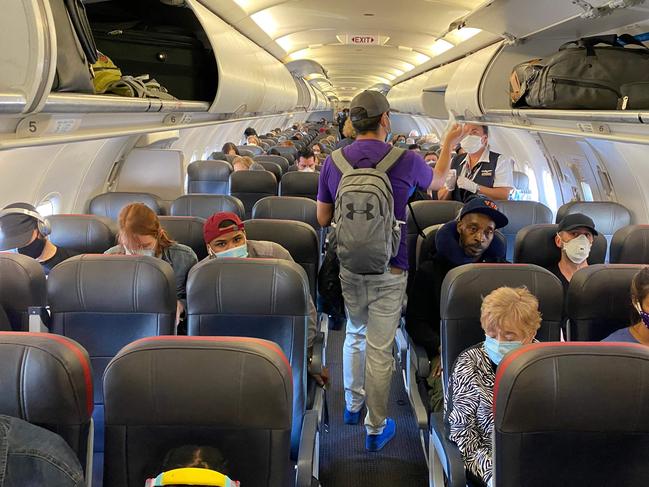
A federal judge on Monday struck down the Covid-19 mask mandate for public transportation imposed by the US Centers for Disease Control and Prevention (CDC).
US District Judge Kathryn Kimball Mizelle of the Middle District of Florida said the mask mandate exceeds the statutory authority of the CDC.
The mandate requiring face masks on planes, the subway, trains, buses and other forms of public transportation was recently extended by the CDC until May 3 amid a rise in coronavirus cases.
US airlines and a number of Republican politicians have called for an end to the mask mandate, which was issued by the CDC on February 3, 2021.
Mizelle, an appointee of former Republican president Donald Trump, issued her ruling in a lawsuit filed in July 2021 by a conservative non-profit organisation called the Health Freedom Defense Fund.
The judge said the mask mandate “exceeded the CDC’s statutory authority,” and the health organisation had “failed to adequately explain its decisions.” “Because our system does not permit agencies to act unlawfully even in pursuit of desirable ends, the Court declares unlawful and vacates the Mask Mandate,” she said.
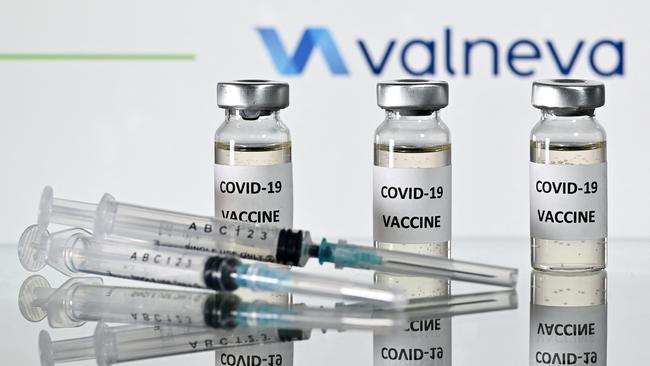
AUSTRALIANS IN SHANGHAI FEAR FOR THEIR CHILDREN
Australians living in Shanghai have expressed fears they might be separated from their children under China’s strict quarantine arrangements.
The ABC has reported that the Australian government has raised concerns with Chinese authorities over a policy of family separation in cases where children become infected with Covid-19, and other strict conditions of lockdown
Australian families living in Shanghai are becoming increasingly fearful of Covid lockdown policies that include separating children from their parents, removing them from their homes and placing them in government run quarantine facilities even if they are asymptomatic.
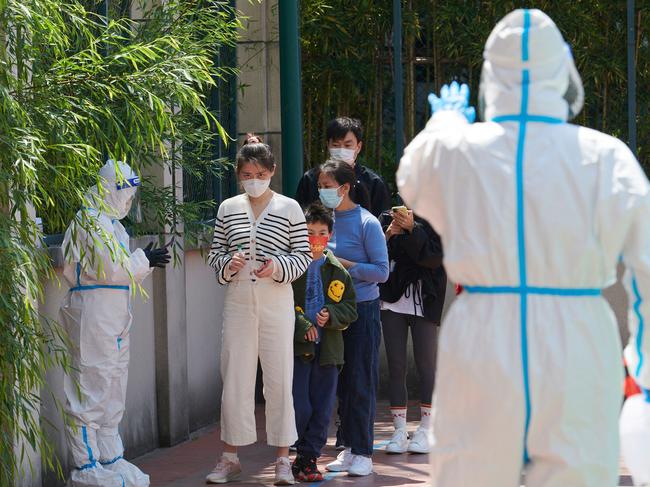
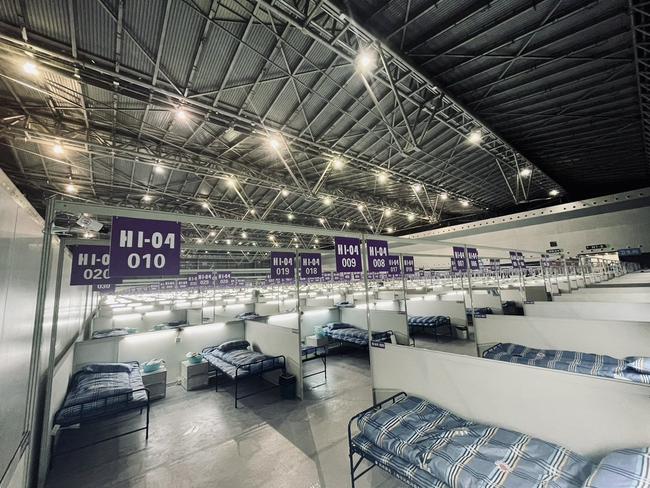
China reported 26,155 new cases on Sunday, with only 3,529 having symptoms.
Shanghai has reported more than 300,000 cases since late March.
Shanghai health authorities confirmed 305 infected children aged six and younger were put in quarantine during March.
The inhumane separation rules have left many expat Australian parents frightened.
Australian father-of-two Norman Lau, originally from Tasmania but who has lived in Shanghai for almost 20 years, told ABC he is terrified of the separation policy.
“The risks of quarantine, separation from family … are even scarier than the risk of contracting Covid itself,” Mr Lau said. He has two children aged 11 and 14.
Dual Australian-American citizen Ender Waters arrived in Shanghai in September 2020 after spending six months in on-and-off lockdowns in Melbourne.
The English-language teacher told ABC the Shanghai lockdown was stricter and came with food shortages.
“That was never the case in Melbourne, we (could) always go to the grocery store and get food,” he said.
Australian Ambassador to China Graham Fletcher sent a video message to Australians in Shanghai, saying Australia has raised its concerns to Chinese authorities over access to food, medical services and quarantine facilities amid the harsh lockdown:https://t.co/Qk3UwhnosQ
— Wing Kuang (@wing_kuang) April 16, 2022
In a video message posted on social media, Australian Ambassador to China Graham Fletcher said the government had raised its concerns with the Chinese government.
“Chinese authorities are working hard to reduce case numbers. But we know lockdowns and other restrictions are having a real impact on all of you there in Shanghai,” he said.
Mr Fletcher said Australia had also raised concerns about “the conditions of quarantine facilities, including whether families will be separated”.
“Like others, we are raising these concerns directly with Chinese officials, without always getting the answers we want,” he said.
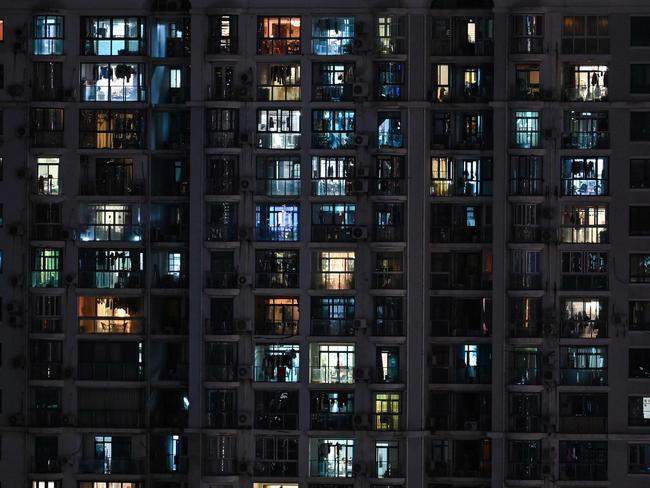
Some residents stuck in Shanghai, locked down since early April, have flooded social media with complaints of food shortages and of overzealous officialdom forcing them into state quarantine, challenging China’s ‘Great Firewall’ of censorship which wipes dissenting views from the internet almost as soon as they appear.
Other cities in China have tightened restrictions in a zero-Covid policy that aims to stamp out the highly transmissible Omicron variant.
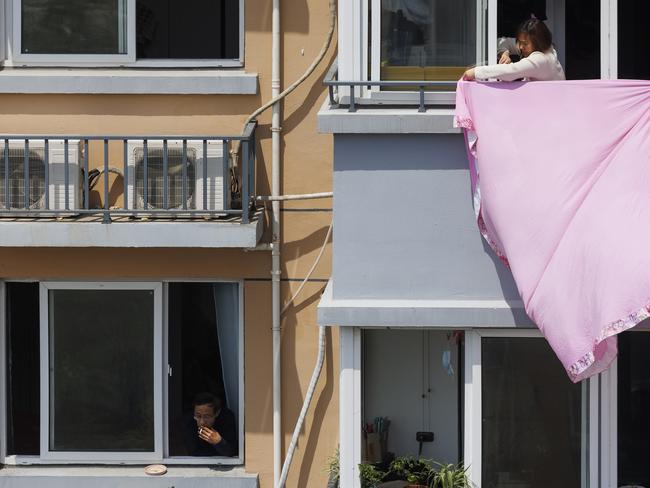
But the megacity of Shanghai and its population of 25 million have become a centre of discontent as it remains mired in lockdown.
The Zhengzhou airport, a business zone and Chinese manufacturing centre that includes Apple supplier Foxconn, has announced a two week lockdown “to be adjusted according to the epidemic situation” as the entire city enters its third week of brutal restrictions.
In northwestern China, the city of Xi’an urged residents to stay at home and work from home
after dozens of Covid infections this month.
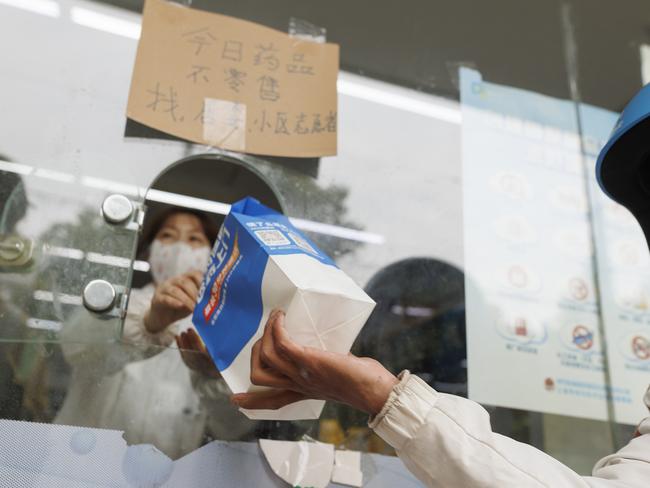
Officials in the city of Suzhou, near Shanghai, which has been hit with an outbreak of more than 500 cases, said all employees capable of working from home must do so, and residential compounds and company campuses should avoid unnecessary entry of people and vehicles.
But ongoing restrictions prompted Japan’s consul general in Shanghai to call for the government to address concerns of Japanese businesses in a letter posted on the consulate’s website on Saturday.
Domestic support for a zero-Covid policy is running out as restrictions have triggered food shortages, family separations, and economic suffering.
Late Thursday, videos circulated showing residents outside a compound shouting at ranks of officials holding shields labelled “police”, as the officers tried to break through their line. In one clip, police appear to make several arrests as the residents accuse them of “hitting people.”
The incident began after authorities ordered 39 households to move out of their homes to house virus patients in the development, according to Zhangjiang Group, the developer of the housing complex.
UK APPROVES VACCINE AS CHINA CRACKDOWN GROWS
In a tale of two societies, Britain has approved a new “traditional” vaccine amid its reopening while China has reportedly started forcibly removing healthy Shanghai residents out of their homes to make space for Covid patients.
The new “Valneva” vaccine, which uses technology of an inactivated virus like most vaccines before the mRNA technology introduced by Pfizer and Moderna, was approved by the UK health regulator.
It’s only the second approval of the vaccine behind an emergency authorisation given in Bahrain for the Austrian-French drugmaker Valneva.
The Medicines and Healthcare products Regulatory Agency said in a statement that the vaccine met the “required safety, quality and effectiveness standards”, creating alternative protection against Covid for people concerned about the side effects of mRNA and DNA vaccines.
Valneva is the sixth coronavirus vaccine to be approved in the UK, after AstraZeneca, Pfizer, Moderna, Janssen (Johnson & Johnson), and Novavax.
Valneva CEO Thomas Lingelbach said the authorisation could lead to additional authorisations in other regions of the world.
The vaccine is approved in the UK for use in people aged 18-50 with the two doses to be taken at an interval of at least 28 days.
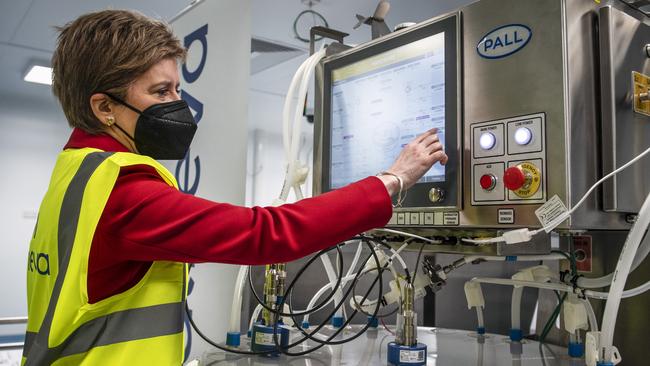
It can be stored at fridge temperature, meaning it can be used in countries where storage at very low temperatures is not available.
Britain was one of the countries hardest hit by the global coronavirus pandemic, where it killed more than 171,000 people.
More than 92 per cent of the population aged 12 or over has had a vaccine dose, 86 per cent a second dose and 68 per cent a booster.
SHANGHAI RESIDENTS CLASH WITH POLICE
Shanghai residents, meanwhile, scuffled with hazmat-suited police ordering them to surrender their homes to Covid-19 patients.
Videos on social media showed a rare glimpse into rising discontent in the megacity of 25 million people over the Communist Party’s inflexible virus response.
Authorities are rushing to construct tens of thousands of beds to house Covid-19 patients as daily infections top 20,000 — small compared with parts of the world getting used to living with the virus.
Some stuck in Shanghai, locked down since early April, have flooded social media with complaints of food shortages and of overzealous officialdom forcing them into state quarantine, challenging China’s ‘Great Firewall’ of censorship which wipes dissenting views from the internet almost as soon as they appear.
New ideas circulating show residents outside a compound shouting at ranks of officials holding shields labelled “police”, as the officers tried to break through their line.
In one clip, police appear to make several arrests as the residents accuse them of “hitting people.”
The incident began after authorities ordered 39 households to move out of their homes to house virus patients in the development, according to Zhangjiang Group, the developer of the housing complex.
In one live-stream, a woman can be heard weeping and asking “why are they taking an old person away?” as officials appeared to put someone into a car.
Zhangjiang Group recognised that videos of the compound that had “appeared on the internet” on Thursday and said “the situation had now settled down” after “some tenants obstructed the construction” of a quarantine fence.
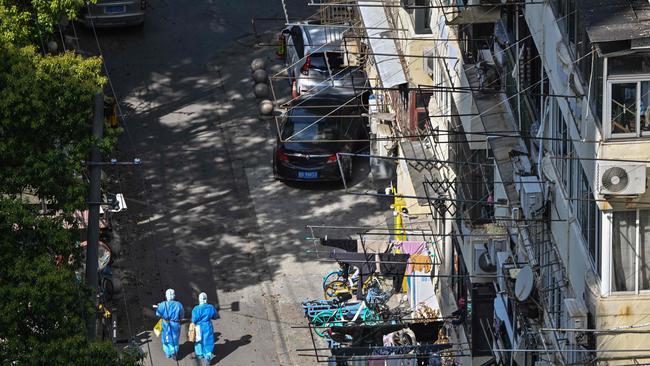
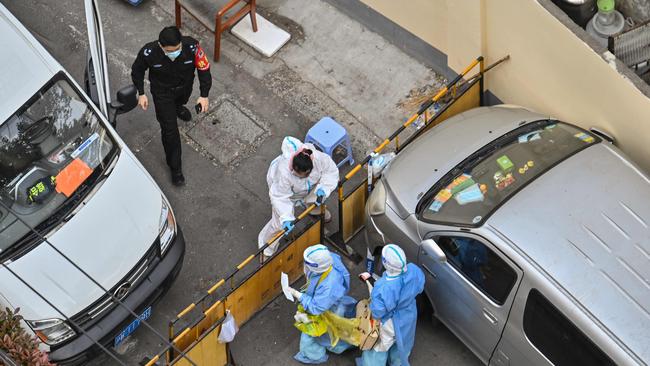
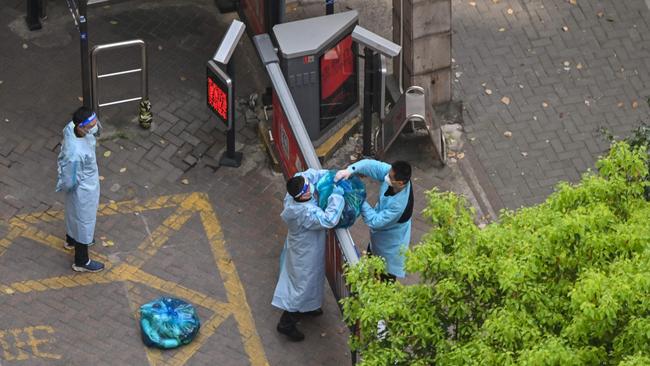
Search results for the name of the apartment complex disappeared from China’s Twitter-like competitor Weibo by Friday morning.
The vast majority of virus cases detected each day are in people with no symptoms — and there have been no deaths officially reported in the city since this outbreak.
Shanghai health official Wu Qianyu said on Thursday that there were only nine severe cases, mostly older patients with underlying health conditions.
Yet authorities have vowed the city “would not relax in the slightest”, preparing over a hundred new quarantine facilities to receive every person who tests positive.
Chairman Xi Jinping warning that strict virus measures “cannot be relaxed” and proclaimed that “persistence is victory,” in a speech published by state media.
CHINA CUTS RATES AMID ECONOMY FEARS
Shanghai, the country’s economic engine room, has become the heart of the country’s biggest outbreak since the peak of the first virus wave in Wuhan over two years ago, rattling the strict zero-Covid policy.
Manufacturers have been forced to halt operations, while carmakers warned this week that the situation could threaten auto output and key ports like Shanghai have become clogged.
As a result, China announced a reserve ratio cut to free up billions of dollars in liquidity as worries intensify over prolonged restrictions disrupting businesses.
The central bank said it would cut the reserve requirement ratio (RRR) by 0.25 percentage points for most banks starting April 25, and 0.5 percentage points for some smaller banks — lowering the amount of cash banks must hold.
The move should free up some 530 billion yuan ($112 billion AUD) of long-term liquidity to be injected into the economy, the bank said in a statement.
A key aim of the rate cut is to “guide financial institutions to actively use funds from the RRR cut to support industries and small, medium and micro enterprises severely affected by the pandemic,” said the People’s Bank of China in a statement.
Analysts said the move would have a limited impact on the slowing economy because the main challenge remains Omicron-driven virus outbreaks and hard lockdown policies — a Beijing policy that looks unlikely to change.
SOUTH KOREA LIFTS RESTRICTIONS
In stark contrast, South Korea will lift almost all social distancing measures due to a dramatic fall in reported cases of Covid-19 after an Omicron-fuelled surge.
South Koreans will be still be required to wear masks indoors “for a considerable time ahead,” authorities said, adding that they may lift the requirement to mask outdoors in two weeks’ time, if cases continue to fall.
“The midnight business curfew and a 10-person cap on the size of gatherings will be lifted starting Monday,” said Prime Minister Kim Boo-kyum.
The decision marks the end of two years of strict distancing requirements, which have put huge strain on small businesses, and indicates South Korea is returning to normality.
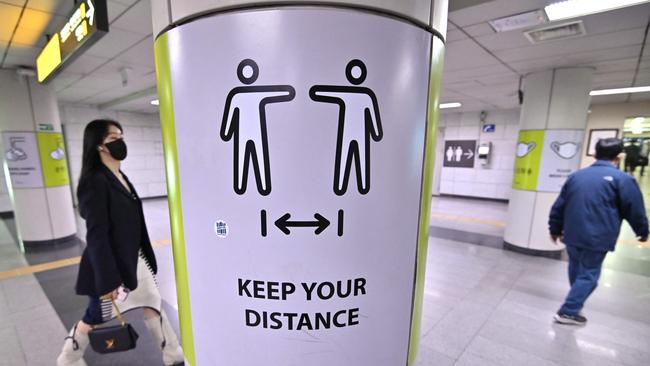
Restrictions on eating inside facilities such as cinemas will also be lifted from April 25.
But requiring the public to wear masks indoors was “inevitable for a considerable time ahead,” to prevent another outbreak, Kim added.
Officials will reassess whether to lift the outdoor mask requirement in two weeks, he added.
The move comes after South Korea appears to have passed the peak of an Omicron-driven outbreak, with daily cases falling to below 100,000 last week, down from a peak of over 620,000 in mid-March.
More than 86 per cent of the South Korean population of 51 million has been fully vaccinated, with the majority also receiving a booster shot.
South Korea is rolling out second boosters to vulnerable populations. Around 20,000 people in South Korea have died from the coronavirus — a 0.13 per cent fatality rate, which is one of the world’s lowest.
Originally published as Coronavirus world: Singapore lifts Covid curbs as WHO recommends ‘Pfizer pill’ for unvaccinated

